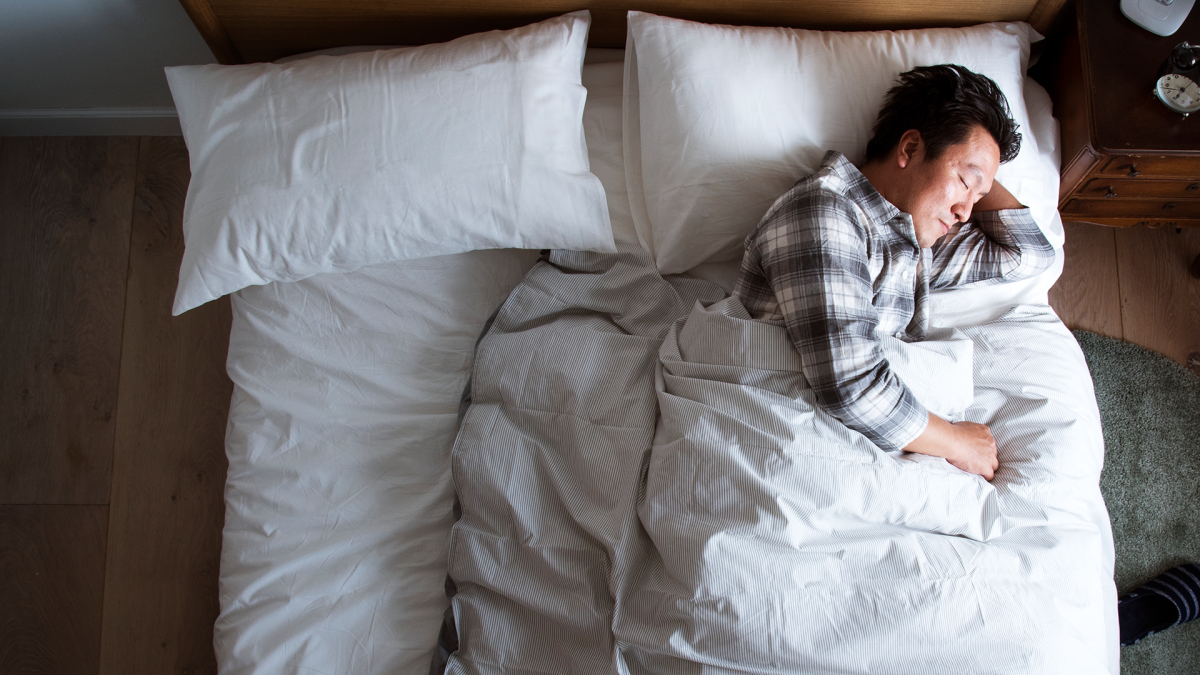- Frequent wearing of warm headgear.
Frequent wearing of warm headgear, especially during cold weather, is indeed necessary to protect from hypothermia. However, if this habit persists even in relatively warm weather or indoors, the body gradually begins to get accustomed to constant additional heat in the head and neck area. As a result, the body’s natural ability to regulate its temperature effectively is disrupted. During the night, when the body enters the recovery phase, it needs to lower slightly its temperature for deep and quality sleep. But if the thermoregulation system is unbalanced, this can lead to active sweating, particularly around the head and neck. This may result in waking up at night feeling hot, with damp hair, discomfort, and even a headache. To avoid this unpleasant experience, it’s essential to gradually adapt the body to a more natural temperature regulation and ensure a comfortable, well-ventilated sleeping environment.
- Low-quality bedding.
At first glance, bedding might seem like just an aesthetic element of your interior. However, its quality directly affects how you feel during the night. The fabrics used for pillowcases, sheets, and duvet covers can either support healthy thermoregulation or, conversely, create a greenhouse effect, leading to excessive sweating. Cheap synthetic materials, which poorly allow air to pass through, trap heat and moisture, preventing the skin from breathing. As a result, during sleep, the head and neck become overheated, prompting the body to activate its protective response — intense sweating. A person may wake up at night with damp hair, a sticky feeling, and even discomfort at the nape of the neck. Therefore, it’s better to choose natural, breathable fabrics for your bedding, such as cotton, linen, satin, or bamboo. Not only are these materials pleasant to the touch, but they also provide a healthy microclimate for your body throughout the night.
- Nervousness and mental health issues.
The psyche directly influences the physiological processes in our bodies, even while we sleep. Stress, anxiety, chronic nervousness, or emotional shocks can trigger what’s known as night sweating, especially around the head, neck, and face. When experiencing emotional tension, the sympathetic nervous system becomes activated, leading to certain reactions that cause excessive sweating in these areas. Additionally, in cases of depression or prolonged emotional exhaustion, the quality of sleep deteriorates, and the body’s ability to regulate temperature is impaired, further exacerbating the issue. A person might wake up feeling inner anxiety, with damp hair and pillow. In such cases, it’s crucial to focus on mental health. Meditation, breathing practices, and consultations with a psychologist or therapist can help restore inner balance, improve sleep quality, and reduce the occurrence of night sweating.
- Overwork.
Overworking is one of the most common, yet often underestimated, causes of night sweating on the head and neck. When a person works for long periods without adequate rest, the body remains in a state of chronic stress. This leads to disruptions in the functioning of various systems in the body. As a result, the body can’t fully relax at night, and this overexertion can manifest as excessive sweating during a sleep. The head and neck, as the most sensitive areas to stress, are the first to react. As a result, you wake up in the middle of the night and then can’t fall back to sleep quickly, and in the morning, you feel tired and not at all productive (in this case, to restore focus and remain productive throughout the day, consider taking medications like Modavigil and Artvigil). It is important to remember that while it’s impossible to complete all the work, it’s very possible to harm your health. Therefore, be mindful of your body, and at the first signs of these unpleasant symptoms, review your schedule and find more time for rest.
- Terrible dreams.
When a person has nightmares, they may experience severe emotional stress, which manifests itself in physical ways, such as increased heart rate, rapid breathing and, as a result, excessive sweating. These disturbing dreams can be a consequence of stress, anxious thoughts, or psychological trauma. If you find that such dreams are recurring regularly, take a closer look at your schedule and diet, as what you do and eat throughout the day can significantly impact your night’s rest. Try to spend more time outdoors and diversify your diet by including more greens and fruits. If nothing seems to help and the disturbing nightmares continue to interfere with your rest, consult a specialist who can identify the issue and help you restore a better sleep pattern.








